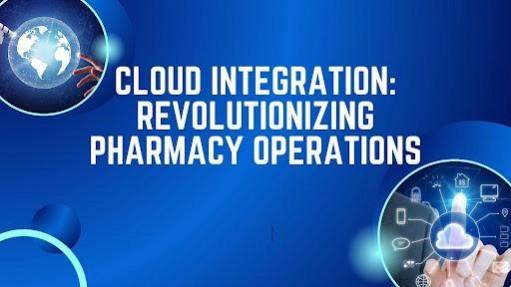
The integration of cloud-based solutions is reshaping the landscape of pharmacy management, offering real-time data access, enhanced safety features, and seamless interoperability. In his work, Ram Mohan Reddy Pothula explores how these advancements are revolutionizing the way pharmacies operate, enabling efficiency and accuracy in medication management. His research highlights the technological evolution that is paving the way for better healthcare outcomes.
Breaking Down Information Barriers
Cloud-based pharmacy integration also enables powerful data analytics capabilities, transforming raw prescription data into actionable insights that drive business decisions and patient care improvements. Pharmacies can leverage these analytics to optimize inventory management, predict prescription trends, and identify opportunities for patient intervention.
Additionally, cloud solutions offer enhanced security features that protect sensitive patient data while maintaining compliance with healthcare regulations. The scalability of cloud infrastructure allows pharmacies of all sizes to implement sophisticated integration solutions without prohibitive hardware investments, democratizing access to advanced pharmacy technology across the healthcare ecosystem.
Real-Time Medication Management
With cloud-based integration, pharmacists can access comprehensive patient medication histories instantly. This capability is particularly crucial for managing complex medication regimens, ensuring appropriate dosages, and preventing harmful drug interactions. By leveraging cloud technology, pharmacies can significantly reduce verification time while improving accuracy in medication dispensing. Moreover, this real-time access extends beyond medication records to include laboratory results, allergies, and clinical notes, creating a holistic view of patient health. This comprehensive perspective empowers pharmacists to provide more personalized care.
Automated Safety Measures
One of the most impactful innovations in cloud-integrated pharmacy systems is the automation of safety checks. These systems can analyze vast amounts of clinical data to identify potential drug interactions, allergies, or contraindications before medication is dispensed. This proactive approach to patient safety reduces medication errors and enhances the overall quality of care.
Enhancing Patient Engagement
Cloud-based platforms also contribute to improved patient engagement by providing digital tools for medication adherence. Automated reminders, personalized health insights, and real-time prescription tracking enable patients to stay informed and actively participate in their treatment plans. This connectivity fosters a more collaborative relationship between pharmacists and patients, ultimately leading to better health outcomes.
Ensuring Data Security and Compliance
As healthcare systems adopt cloud-based solutions, data security remains a top priority. Robust encryption, multi-factor authentication, and strict access controls are implemented to protect sensitive patient information. Regulatory compliance, including adherence to healthcare data protection laws, ensures that patient confidentiality is maintained while enabling seamless information exchange among healthcare providers.
The Role of Artificial Intelligence and Blockchain
Emerging technologies such as artificial intelligence and blockchain are further enhancing cloud-integrated pharmacy systems. AI-driven analytics help predict medication adherence patterns, identify at-risk patients, and optimize treatment plans. Blockchain technology, on the other hand, ensures transparency and security in pharmaceutical supply chains, reducing the risk of counterfeit medications entering the system.
Overcoming Implementation Challenges
While cloud integration offers numerous benefits, its implementation presents challenges such as system interoperability, workforce adaptation, and cost considerations. Pharmacies must invest in staff training and strategic planning to fully leverage cloud technology's potential. Standardized data protocols and well-structured frameworks can facilitate smoother transitions and maximize the efficiency of cloud-based pharmacy systems.
In conclusion,Cloud-based pharmacy integration represents a significant step toward more efficient and patient-centered healthcare. As technology continues to evolve, pharmacies will increasingly rely on data-driven insights, automation, and interconnected systems to enhance service delivery. The future holds immense potential for cloud-driven solutions to further optimize medication management, reduce costs, and improve patient care.Ram Mohan Reddy Pothula's research underscores the transformative power of cloud-based systems in pharmacy operations. As these innovations continue to advance, they will play a crucial role in shaping the future of healthcare, ensuring safer and more effective medication management for patients worldwide.

















